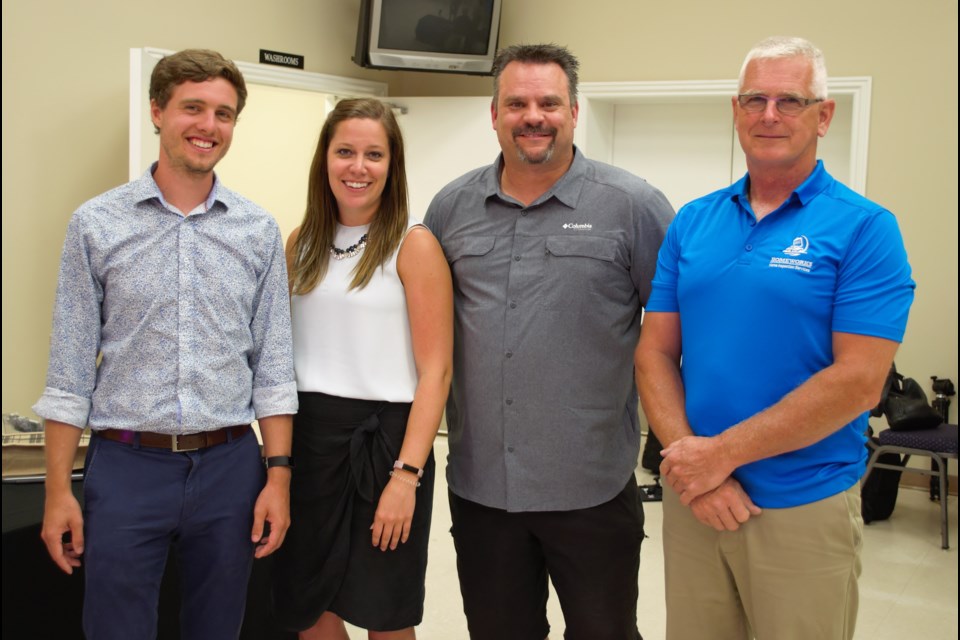There are ways to grow weed in your home that won’t ruin your value.
That was the general message at a free seminar held in Wasaga Beach on Wednesday night at the RecPlex about how the legalization of marijuana could impact local owners of income rental properties.
“We want to raise awareness that (if you’re going to grow pot plants), there is a way to do it properly to avoid any kind of damage or issues to your home, and that should be done,” said Larissa Dutch-Smit, manager of policy for RECO.
Dutch-Smit was one of four speakers at the seminar, which also included local realtor William Caldwell from RE/MAX, Bjorn Dawson, CEO of Grobo, and Dale Brown, a home inspector with Homeworks Home Inspections.
Brown brought attention to the fact that it is not currently required for home inspectors to do a check for mould, which should change.
“So you, as a buyer, when you get a home inspection done, it’s pretty important to find an inspector that has some mould experience,” he said.
While Brown indicated that getting an inspector to do a mould check would cost a bit more upfront, it would be worth it long-term to hire an inspector who’s mould-certified and can do a proper air-quality test.
He indicated that last-minute inspections sometimes pushed by realtors are a bad idea.
“That’s not going to work for you, because you’ll need three or four days to get the results back from the lab,” said Brown.
Dawson started his company, Grobo, looking for ways to grow fruits and vegetables indoors, but progressed toward using the technology to grow marijuana plants as the demand grew.
Dawson’s company has created a smart growing system, which is a self-contained hydroponic apparatus, the approximate size of a water cooler. It plugs into the wall and can grow one marijuana plant per unit.
Four plants per residence will be allowed under the new legislation.
The system has built-in safety features including a locked door with smartphone entry options.
Dawson’s presentation worked to dispel the myths surrounding growing pot in a home for personal use, including that growing cannabis increases the likelihood of a fire, mould or odour.
He distinguished between people growing cannabis for medical use and people growing cannabis for personal use. He indicated that people already are allowed to grow cannabis for medical use, so that’s not something that’s new.
Since 2016, Dawson said there have been 40,000 growing applications for medical use, meaning that today there are likely about that many people currently already growing cannabis in their homes.
“We’ve had lots of people who are excited to grow outdoors and have no idea why we need to sell these systems. I think that will change in winter,” said Dawson, to a chuckle from the audience.
Dutch-Smit spoke about the changes as they pertain to purchasing insurance for mortgages, but for homes that have been determined to contain illegal grow-ops. She also outlined the requests RECO has made to the new Doug Ford government, but with a caveat that the Progressive Conservatives haven’t yet had a chance to look at the policy.
“We’re trying to make sure our members’ concerns are addressed,” said Dutch-Smit.
When asked a question about how landlords can protect their properties in their lease agreements from damage that could be caused by growing cannabis, Dutch-Smit indicated that those details had not yet been hammered out by the government.



